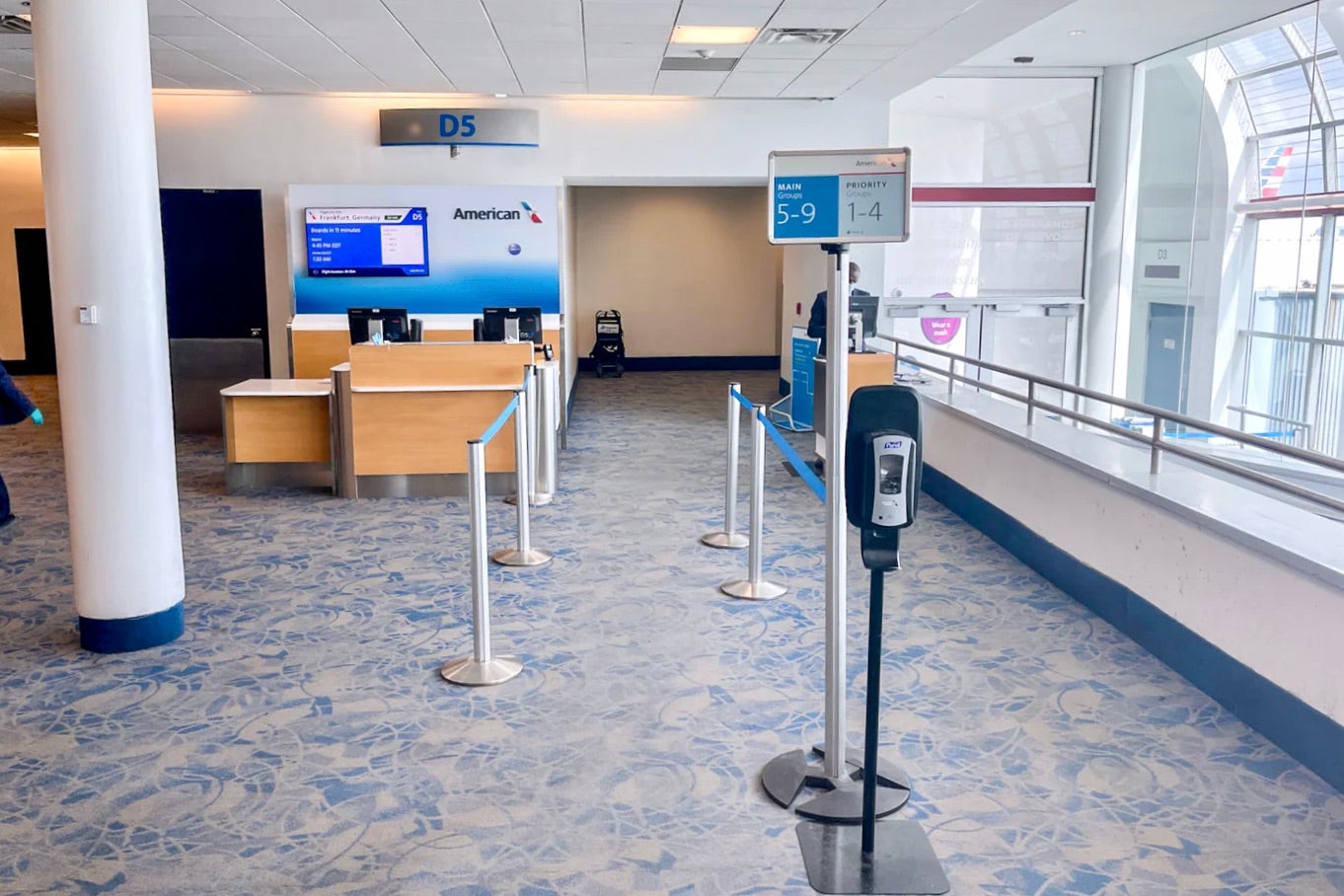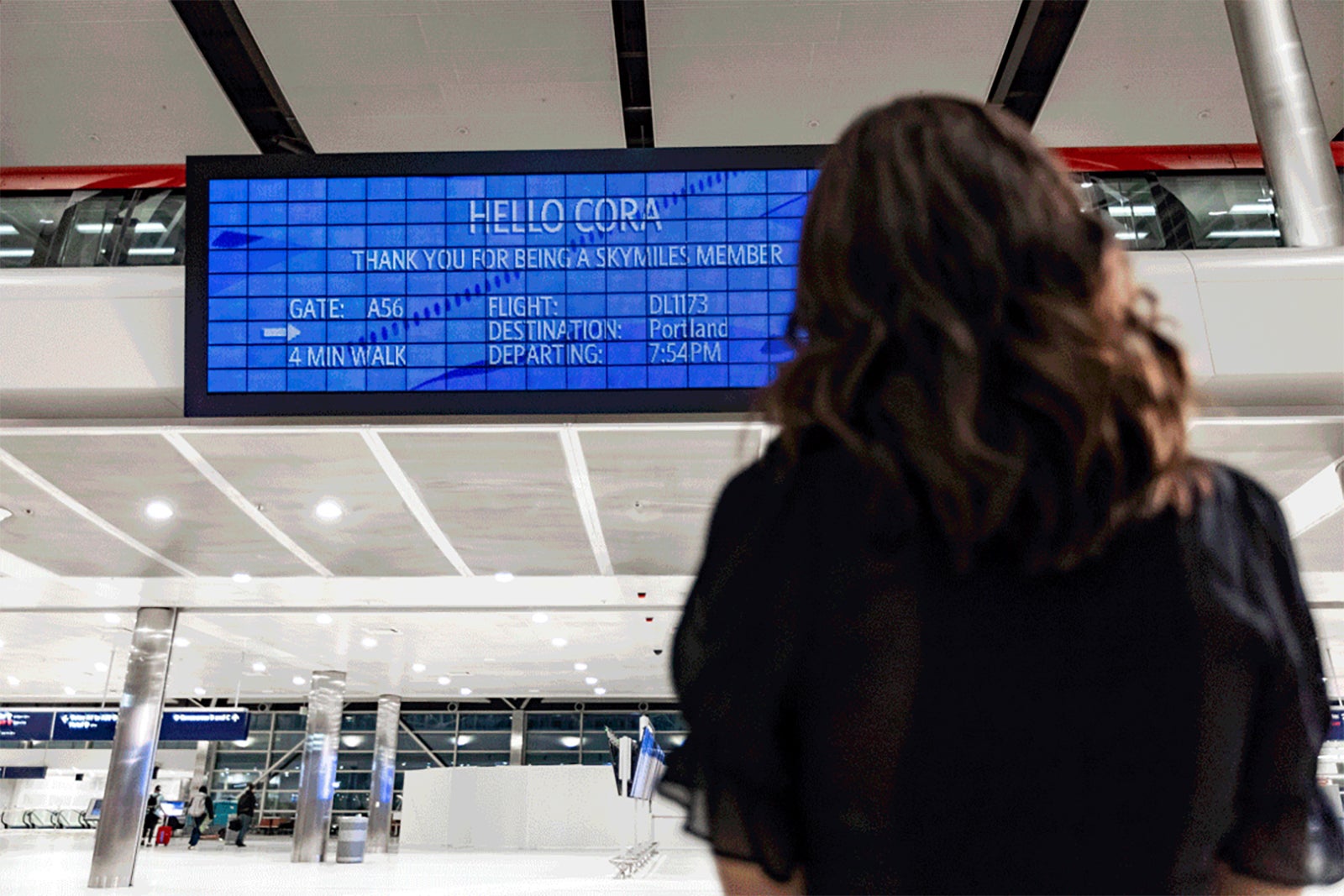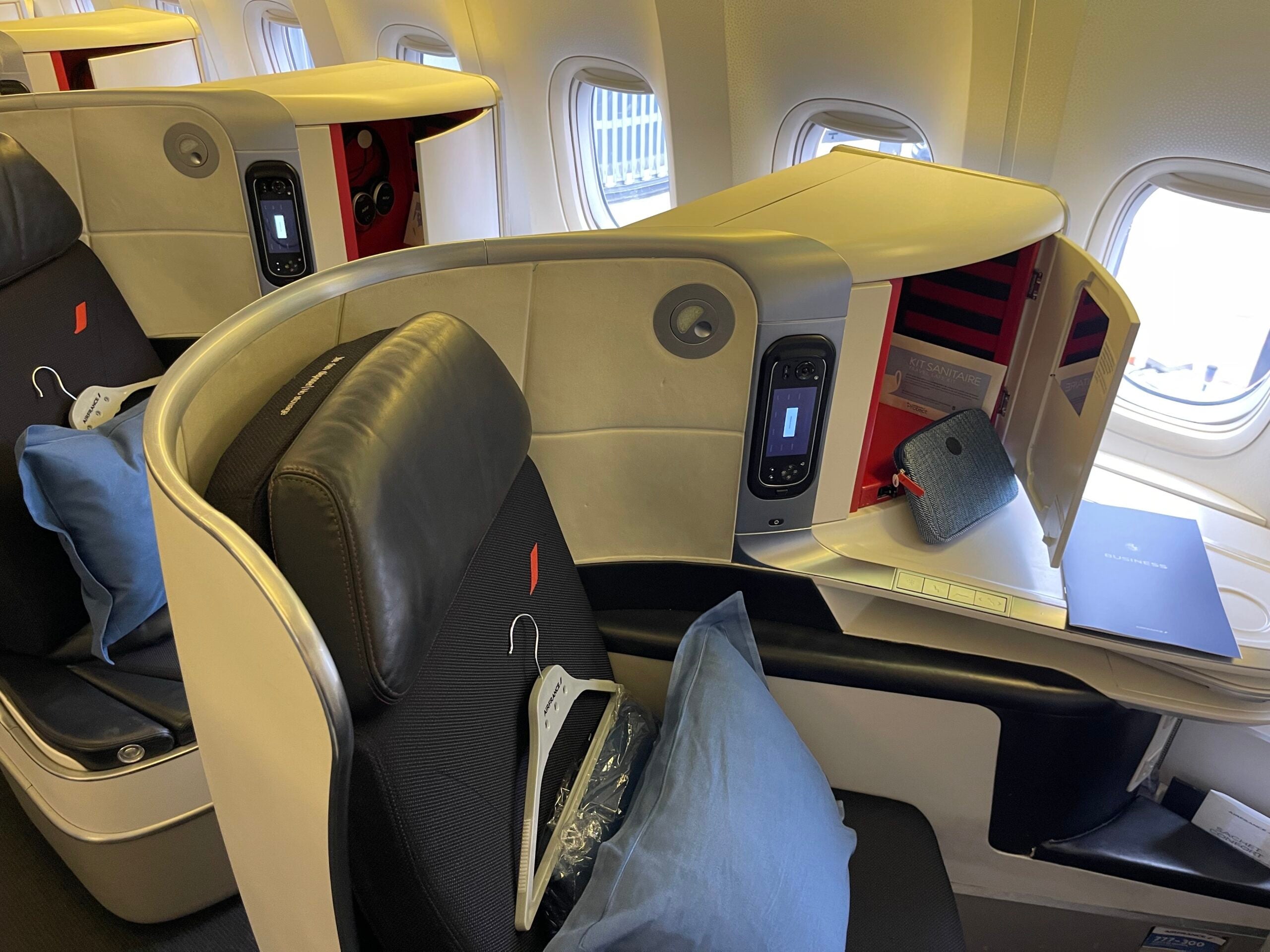Our 2024 credit card predictions: Higher fees, lower interest rates and superior technology
With 2023 behind us, it’s time for our annual predictions for what the world of credit cards and rewards will bring in the year ahead.
The good news? Enhanced technology, new premium credit cards and more transfer partners. The bad? Increasingly difficult-to-use statement credits and restrictions on lounge access.
Furthermore, Congress may continue pushing the Credit Card Competition Act — either as a stand-alone bill or as an amendment to other proposed pieces of legislation. This could negatively affect the rewards ecosystem and ultimately cost consumers, so it’s something we’re watching closely.
Related: Here’s why your credit card perks could be going away
Let’s dive into 10 trends to expect from your points and miles with our 2024 credit card predictions.
Credit card or coupon card?
In 2024, we predict that card issuers will continue to offer new statement credits with specific partners — often split out into monthly, quarterly or biannual (every six months) chunks.
American Express is the main culprit of this hard-to-maximize trend, with a recent example being the quarterly flight and hotel credits introduced to Hilton cobranded cards in October last year. However, Citi got in on the action in 2023 as well, adding a variety of new statement credits to the Citi® / AAdvantage® Executive World Elite Mastercard® (see rates and fees).
These partnerships encourage cardholders to spend with specific merchants (or specific types of merchants), though remembering to use the various statement credits can lead to breakage — cardholders not fully using them.
Increased fees
It’s unrealistic to expect annual and authorized user fees to decrease over time. We’re seeing many cards increase their annual fees, like the American Express® Business Gold Card‘s increase from $295 to $375 from Feb. 1 (see rates and fees).

Daily Newsletter
Reward your inbox with the TPG Daily newsletter
Join over 700,000 readers for breaking news, in-depth guides and exclusive deals from TPG’s experts
Issuers are also aiming to derive more revenue from cardholders adding authorized users, who enjoy perks like lounge access and TSA PreCheck and Global Entry statement credits.
My top prediction for an annual fee increase this year? The Capital One Venture X Rewards Credit Card.
It was launched over two years ago with a $395 annual fee (see rates and fees) that has not increased since then. Given its two main competitors, the Chase Sapphire Reserve and The Platinum Card® from American Express, have annual fees of $550 and $695, respectively (see rates and fees for the Platinum card), the issuer may feel emboldened to bump the fee in 2024.
Alternatively, it could retain its advantage as the most competitively priced premium credit card — something that likely played a factor in winning Best Premium Credit Card at the 2023 TPG Awards.
More premium card competition
While American Express and Chase have traditionally dominated the premium travel rewards credit card space, expect more issuers to join Capital One in challenging their dominance.
Wells Fargo (for one) plans to launch a new card this year.
More uncertain is what Citi is doing in the premium card space. Its top-tier Citi Prestige card has not been available to new applicants since mid-2021. It has registered trademarks for a new “Strata” card family but has been sitting on this name since late 2022, so only time will tell if Citi will reenter the space to give its competitors a run for their money.
The information for the Citi Prestige has been collected independently by The Points Guy. The card details on this page have not been reviewed or provided by the card issuer.
Lounge access restrictions
If you’re a frequent flyer, you already know lounges are crowded. Airlines, card issuers and lounge operators have the difficult task of balancing the carrot of lounge access offered by credit cards with capacity in their facilities.
As such, expect more announcements on the tightening of lounge access, whether a reduction in annual visits or a complete cut for select cardholders.
Some of these have already been announced. For example, starting Feb. 1, 2025, Delta Air Lines will restrict those holding one of its top-tier cobranded credit cards and Amex Platinum cardmembers to a limited number of annual visits, depending on the card.
Hilton cobranded credit card members lose Priority Pass lounge access between February and October this year, depending on when their card was opened.
And Capital One is fighting overcrowding in its growing lounge network by cutting its two-annual-visits perk for Capital One Venture Rewards Credit Card and Capital One Spark Miles for Business cardholders from January 2025.
Related: A complete guide to Capital One’s airport lounges
Lower interest rates
The perennial question: When will the Federal Reserve cut interest rates, and by how much?
Assuming no major economic shocks and with inflation continuing to drop, many economists predict interest rates to hold steady for the first two months of the year, with cuts on the way from March onward. Morningstar predicts six rate cuts this year, bringing it to 4% or below by year’s end.
Remember that mortgage rates sit higher than interest rates. They are expected to sit between 6% and 7% from the second quarter, which would stimulate the housing market. And further rate cuts are expected in 2025.
Similarly, the interest rate you pay on credit card purchases sits higher than the benchmark interest rate. So, for example, if the Federal Reserve cuts the current 5.5% interest rate to 5.25% in March, the average annual percentage rate would drop from around 20.75% to 20.5% — but changes usually take one to two billing cycles to be reflected on your statement.
However, you should always pay your balance in full every month to avoid interest entirely.
Related: 5 mistakes to avoid when you get your 1st credit card
Frequent flyers become frequent spenders
The days of mileage runs and earning elite status primarily through work travel are fast disappearing. Stepping into the void? Loyalty programs (and credit cards) that reward members for spending significantly — and broadly — within their ecosystem.
Previously, you’d tend to reach elite status with an airline by segments or distance flown. That still holds for Alaska Airlines and United Airlines (to some degree) — at least for now.
American Airlines was the first mover to overhaul its elite-status program by introducing Loyalty Points in 2022, rewarding members based on the amount they spent with the airline and its partners, not how much they flew. And Delta has followed suit.
To qualify for Delta elite status this year for 2025 and beyond, you’ll need to spend significantly with the airline or put a lot of your expenses on one of its cobranded credit cards.
And, from February 2025, you’ll need to spend $75,000 on an eligible card in a calendar year to get unlimited Sky Club access instead of a limited number of annual visits. This closely mirrors the spending requirements that Amex implemented in 2023 on its Platinum cards to enjoy unlimited guest privileges in Centurion Lounges.
As airline frequent flyer programs seek to maximize revenue and target high-income consumers, expect more programs to join American and Delta in making elite status requirements stricter and further tying them to credit card spending — leading some to question whether airline elite status is even worth chasing anymore.
Targeted welcome offers
By leveraging data and artificial intelligence, issuers can access more information on our spending and travel patterns than ever before.
While targeted welcome offers for signing up for a new credit card have been landing in our inboxes and mailboxes for decades, expect personalized offers through social media and tools like CardMatch to increase.
Related: How to use the CardMatch tool to get better credit card welcome offers
Over the past few months, American Express has trialed public offers of “up to” a certain number of points or miles. Then, when submitting your application, it tells you the exact number of points or miles you are eligible for.
We may also see innovative technology bring personalized offers to your travel experience, such as Delta offering targeted welcome bonuses to its travelers using its personalized flight information screens at select airports like Detroit Metropolitan Wayne County Airport (DTW). Imagine walking up to this screen, reading your flight information and being offered an increased welcome offer for signing up for a new card that day through Delta’s app, at the lounge or aboard your flight.
AI-powered customer service
Credit card issuers will continue integrating AI and chatbots into their customer service operations, assisting with account management, customer support and dispute resolution.
This has several advantages for consumers, including instant 24/7 support availability, and reduces issuers’ costs. However, inaccurate or unsatisfactory AI-generated answers and support will mean that sometimes, a human touch will be needed, which may not be available immediately.
Enhanced credit card security
Swiping a card is an embedded image in many of our brains. However, chip, contactless and mobile technology has quickly become the industry standard.
From this year, newly issued Mastercard credit and debit cards will not be required to have a stripe in most markets; by 2033, no Mastercard will even be allowed to have one.
Related: How to identify and prevent credit card fraud
New transfer partners
Currently, American Express Membership Rewards is in the lead with 21 transfer partners, with the other four major programs with transferable currencies all sitting between 14 and 18 partners each. Most recently, we saw Bilt Rewards add Avianca LifeMiles as its 15th partner in its lineup.
Consumers are increasingly realizing the value of flexible points over those held with a particular airline or hotel. Therefore, expect issuers to differentiate their rewards currencies by launching more transfer partnerships this year.
But note that it’s not just the quantity but also the quality of the transfer partners that matters. This helps explain why Chase Ultimate Rewards and Bilt Rewards points are valued higher than the other three rewards currencies even though they have the fewest partners (14 and 15, respectively).
Bottom line
If you’ve been reading TPG for a while or are familiar with the frequent flyer space, you’ll know that the cards and rewards world is constantly changing. This brings opportunities — and challenges — to all consumers wanting to extract the most value from their points and miles.
Therefore, given the mixed set of trends we predict for 2024, if you want to get the most out of your credit card spending and travels, my advice is to:
We’re here to keep you informed, publishing an average of 88 weekly stories, totaling more than 4,500 annually. To cut through the noise and stay in the know, join our more than 4 million followers across Instagram, TikTok, Facebook and X and sign up for our newsletter to receive a daily digest of all the important news.
At the end of the year, we’ll review our 2024 credit card predictions to see which ones we got wrong and right. Last year, we got 9 of our 13 predictions correct and the remaining 4 partially correct, so let’s see what 2024 has in store for us.
Related: How many credit cards should I have?
For rates and fees of the Amex Business Gold, click here.















